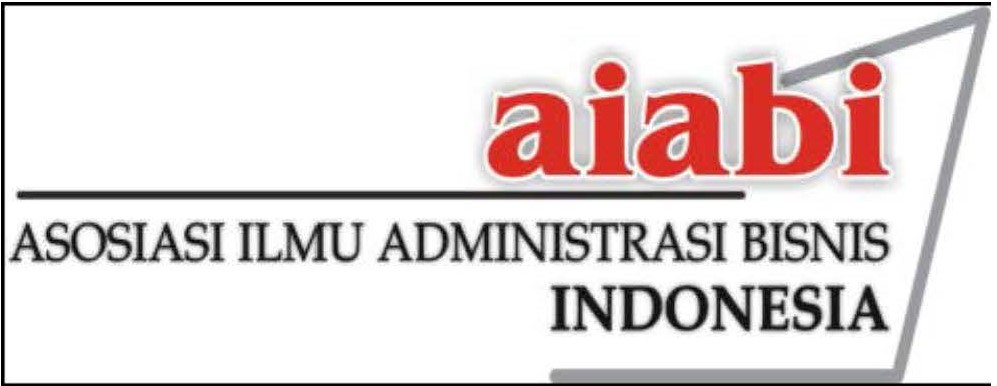PENGARUH ENTREPRENEURIAL ECOSYSTEM TERHADAP ENTREPRENEURIAL INTENTION: PERAN MEDIASI ENTREPRENEURIAL SELF-EFFICACY DAN PERCEIVED BEHAVIORAL CONTROL PADA MAHASISWA SARJANA
Abstrak
Based on the Theory of Planned Behavior (TPB), this study aims to examine the influence of the entrepreneurial ecosystem on entrepreneurial intention, and to investigate the mediating role of entrepreneurial self-efficacy and perceived behavioral control in this relationship. This study used data collected from 426 undergraduate students from four different universities in the Greater Jakarta area. Through data processing carried out using the structural equation modeling (SEM) method, it was found that entrepreneurial self-efficacy and perceived behavioral control fully mediate the relationship between entrepreneurial ecosystem and entrepreneurial intention with no direct influence of entrepreneurial ecosystem on entrepreneurial intention. The increase in national entrepreneurship can be manifested through increasing the entrepreneurial intention on undergraduate students. The participation of various stakeholders, starting from the society, public media, educational institutions, and the government was found to play important roles in supporting its realization. This research is expected to enrich theoretical studies related to the influence of entrepreneurial ecosystems on entrepreneurial intentions of undergraduate students in developing countries context.
Berlandaskan Theory of Planned Behavior (TPB), penelitian ini bertujuan untuk menguji pengaruh entrepreneurial ecosystem terhadap entrepreneurial intention, serta menginvestigasi peran mediasi entrepreneurial self-efficacy dan perceived behavioral control dalam hubungan tersebut. Penelitian ini menggunakan data yang dikumpulkan dari 426 mahasiswa sarjana yang berasal dari empat universitas yang berbeda di wilayah Jabodetabek. Melalui pengolahan data yang dilakukan dengan metode structural equation modelling (SEM) ditemukan bahwa entrepreneurial self-efficacy dan perceived behavioral control memediasi penuh hubungan antara entrepreneurial ecosystem dan entrepreneurial intention dengan tidak adanya pengaruh langsung entrepreneurial ecosystem terhadap entrepreneurial intention. Peningkatan wirausaha nasional dapat dimanifestasikan melalui peningkatan entrentrepreneurial intention mahasiswa sarjana. Partisipasi berbagai pihak pemangku kepentingan, dimulai dari masyarakat, media publik, lembaga pendidikan, hingga pemerintah ditemukan berperan penting untuk mendukung perwujudannya. Penelitian ini diharapkan dapat memperkaya kajian teoritis terkait pengaruh entrepreneurial ecosystem terhadap entrepreneurial intention mahasiswa sarjana dalam konteks negara berkembang.
Kata Kunci
Teks Lengkap:
PDFReferensi
Ajzen, I. (1991). The theory of planned behavior. Organizational Behavior and Human Decision Processes, 50(2), 179–211.
al Saiqal, N. Y., Ryan, J. C., & Parcero, O. J. (2019). Entrepreneurial Intention and UAE Youth: Unique Influencers of Entrepreneurial Intentions in an Emerging Country Context. Journal of East-West Business, 25(2). https://doi.org/10.1080/10669868.2018.1536012
Alammari, K., Newbery, R., Haddoud, M. Y., & Beaumont, E. (2019). Post-materialistic values and entrepreneurial intention – the case of Saudi Arabia. Journal of Small Business and Enterprise Development, 26(1). https://doi.org/10.1108/JSBED-12-2017-0386
Alferaih, A. (2017). Weight- and meta-analysis of empirical literature on entrepreneurship: Towards a conceptualization of entrepreneurial intention and behaviour. International Journal of Entrepreneurship and Innovation, 18(3). https://doi.org/10.1177/1465750317722114
Al-Ghazali, B. M., & Afsar, B. (2021). Narcissism and entrepreneurial intentions: The roles of entrepreneurial self-efficacy and environmental complexity. Journal of High Technology Management Research, 32(1). https://doi.org/10.1016/j.hitech.2020.100395
Ali, I., Ali, M., & Badghish, S. (2019). Symmetric and asymmetric modeling of entrepreneurial ecosystem in developing entrepreneurial intentions among female university students in Saudi Arabia. International Journal of Gender and Entrepreneurship, 11(4). https://doi.org/10.1108/IJGE-02-2019-0039
Altinay, L., Madanoglu, M., Daniele, R., & Lashley, C. (2012). The influence of family tradition and psychological traits on entrepreneurial intention. International Journal of Hospitality Management, 31(2). https://doi.org/10.1016/j.ijhm.2011.07.007
Audretsch, D. B., & Link, A. N. (2019). Embracing an entrepreneurial ecosystem: an analysis of the governance of research joint ventures. Small Business Economics, 52(2). https://doi.org/10.1007/s11187-017-9953-8
Badan Pusat Statistik. (2017). Sensus Ekonomi 2016. Badan Pusat Statistik.
Batool, H., Rasheed, H., Malik, M. I., & Hussain, S. (2015). Application of partial least square in predicting e-entrepreneurial intention among business students: evidence from Pakistan. Journal of Innovation and Entrepreneurship, 4(1). https://doi.org/10.1186/s13731-015-0019-3
Bilgiseven, E. B., & Kasimoǧlu, M. (2019). Analysis of Factors Leading to Entrepreneurial Intention. Procedia Computer Science, 158. https://doi.org/10.1016/j.procs.2019.09.127
Bosma, N., Hill, S., Ionescu-Somers, A., Kelley, D., Levie, J., & Tarnawa, A. (2020). Global Entrepreneurship Monitor 2019/2020 Global Report.
Bullough, A., Renko, M., & Myatt, T. (2014). Danger zone entrepreneurs: The importance of resilience and self-efficacy for entrepreneurial intentions. Entrepreneurship: Theory and Practice, 38(3). https://doi.org/10.1111/etap.12006
Castaño, M. S., Méndez, M. T., & Galindo, M. Á. (2015). The effect of social, cultural, and economic factors on entrepreneurship. Journal of Business Research, 68(7). https://doi.org/10.1016/j.jbusres.2015.01.040
Çelik, A. K., Yıldız, T., Aykanat, Z., & Kazemzadeh, S. (2021). The impact of narrow personality traits on entrepreneurial intention in developing countries: A comparison of Turkish and Iranian undergraduate students using ordered discrete choice models. European Research on Management and Business Economics, 27(1). https://doi.org/10.1016/j.iedeen.2020.100138
Dheer, R. J. S., & Lenartowicz, T. (2019). Cognitive flexibility: Impact on entrepreneurial intentions. Journal of Vocational Behavior, 115. https://doi.org/10.1016/j.jvb.2019.103339
Do, B. R., & Dadvari, A. (2017). The influence of the dark triad on the relationship between entrepreneurial attitude orientation and entrepreneurial intention: A study among students in Taiwan University. Asia Pacific Management Review, 22(4). https://doi.org/10.1016/j.apmrv.2017.07.011
Doanh, D. C., & Bernat, T. (2019). Entrepreneurial self-efficacy and intention among Vietnamese students: A meta-analytic path analysis based on the theory of planned behavior. Procedia Computer Science, 159. https://doi.org/10.1016/j.procs.2019.09.420
Doanh, D. C., & van Munawar, T. (2019). Entrepreneurial self-efficacy and intention among Vietnamese students: A meta-analytic path analysis based on the theory of planned behaviour. Management Science Letters, 9(11). https://doi.org/10.5267/j.msl.2019.6.007
Donaldson, C. (2019). Intentions resurrected: a systematic review of entrepreneurial intention research from 2014 to 2018 and future research agenda. International Entrepreneurship and Management Journal, 15(3). https://doi.org/10.1007/s11365-019-00578-5
Eid, R., Badewi, A., Selim, H., & El-Gohary, H. (2019). Integrating and extending competing intention models to understand the entrepreneurial intention of senior university students. Education and Training, 61(2). https://doi.org/10.1108/ET-02-2018-0030
Elnadi, M., & Gheith, M. H. (2021). Entrepreneurial ecosystem, entrepreneurial self-efficacy, and entrepreneurial intention in higher education: Evidence from Saudi Arabia. International Journal of Management Education, 19(1). https://doi.org/10.1016/j.ijme.2021.100458
Elnadi, M., Gheith, M. H., & Farag, T. (2020). How does the perception of entrepreneurial ecosystem affect entrepreneurial intention among university students in Saudi Arabia? International Journal of Entrepreneurship, 24(3).
Fayolle, A., & Liñán, F. (2014). The future of research on entrepreneurial intentions. Journal of Business Research, 67(5). https://doi.org/10.1016/j.jbusres.2013.11.024
Hair, J. F., Black, W. C., Babin, B. J., & Anderson, R. E. (2010). Multivariate data analysis, 7th ed. Prentice Hall, New Jersey. Technometrics, 15(3).
Hair Jr, J. F., Hult, G. T. M., Ringle, C., & Sarstedt, M. (2014). A primer on partial least squares structural equation modeling (PLS-SEM). Sage Publications.
Kementerian Koperasi dan Usaha Kecil dan Menengah Republik Indonesia. (2019). Perkembangan data usaha mikro, kecil, menengah (UMKM) dan usaha besar (UB) tahun 2018-2019.
Liñán, F., & Chen, Y. W. (2009). Development and cross-cultural application of a specific instrument to measure entrepreneurial intentions. Entrepreneurship: Theory and Practice, 33(3). https://doi.org/10.1111/j.1540-6520.2009.00318.x
Liñán, F., & Fayolle, A. (2015). A systematic literature review on entrepreneurial intentions: citation, thematic analyses, and research agenda. International Entrepreneurship and Management Journal, 11(4). https://doi.org/10.1007/s11365-015-0356-5
Memon, M., Soomro, B. A., & Shah, N. (2019). Enablers of entrepreneurial self-efficacy in a developing country. Education and Training, 61(6). https://doi.org/10.1108/ET-10-2018-0226
Miranda, F. J., Chamorro-Mera, A., & Rubio, S. (2017). Academic entrepreneurship in Spanish universities: An analysis of the determinants of entrepreneurial intention. European Research on Management and Business Economics, 23(2). https://doi.org/10.1016/j.iedeen.2017.01.001
Moghavvemi, S., Mohd Salleh, N. A., & Standing, C. (2016). Entrepreneurs adoption of information system innovation: The impact of individual perception and exogenous factors on entrepreneurs behavior. Internet Research, 26(5). https://doi.org/10.1108/IntR-01-2014-0024
Mustafa, M. J., Hernandez, E., Mahon, C., & Chee, L. K. (2016). Entrepreneurial intentions of university students in an emerging economy: The influence of university support and proactive personality on students’ entrepreneurial intention. Journal of Entrepreneurship in Emerging Economies, 8(2). https://doi.org/10.1108/JEEE-10-2015-0058
Nazara, S., Adriyanto, & Akbar, R. (2018). Bunga Rampai Rekomendasi Kebijakan Forum Ekonom Kementerian Keuangan 2018.
Newman, A., Obschonka, M., Schwarz, S., Cohen, M., & Nielsen, I. (2019). Entrepreneurial self-efficacy: A systematic review of the literature on its theoretical foundations, measurement, antecedents, and outcomes, and an agenda for future research. In Journal of Vocational Behavior (Vol. 110). https://doi.org/10.1016/j.jvb.2018.05.012
Nurmayanti. (2020, October 22). Rasio Kewirausahaan Indonesia Baru 3,47 Persen, Tertinggal dari Malaysia dan Thailand. Kompas.Com. https://www.liputan6.com/bisnis/read/4388954/rasio-kewirausahaan-indonesia-baru-347-persen-tertinggal-dari-malaysia-dan-thailand
Obschonka, M., Hakkarainen, K., Lonka, K., & Salmela-Aro, K. (2017). Entrepreneurship as a twenty-first century skill: entrepreneurial alertness and intention in the transition to adulthood. Small Business Economics, 48(3). https://doi.org/10.1007/s11187-016-9798-6
Pfeifer, S., Šarlija, N., & Zekić Sušac, M. (2016). Shaping the Entrepreneurial Mindset: Entrepreneurial Intentions of Business Students in Croatia. Journal of Small Business Management, 54(1). https://doi.org/10.1111/jsbm.12133
Pushkarskaya, H., Fortunato, M. W. P., Breazeale, N., & Just, D. R. (2021). Enhancing measures of ESE to incorporate aspects of place: Personal reputation and place-based social legitimacy. Journal of Business Venturing, 36(3). https://doi.org/10.1016/j.jbusvent.2020.106004
Saraih, U. N., Zin Aris, A. Z., Abdul Mutalib, S., Tunku Ahmad, T. S., Abdullah, S., & Harith Amlus, M. (2018). The Influence of Self-Efficacy on Entrepreneurial Intention among Engineering Students. MATEC Web of Conferences, 150. https://doi.org/10.1051/matecconf/201815005051
Schlaegel, C., & Koenig, M. (2014). Determinants of Entrepreneurial Intent: A Meta-Analytic Test and Integration of Competing Models. Entrepreneurship: Theory and Practice, 38(2). https://doi.org/10.1111/etap.12087
Schmutzler, J., Andonova, V., & Diaz-Serrano, L. (2019). How Context Shapes Entrepreneurial Self-Efficacy as a Driver of Entrepreneurial Intentions: A Multilevel Approach. Entrepreneurship: Theory and Practice, 43(5). https://doi.org/10.1177/1042258717753142
Sekaran, U., & Bougie, R. (2016). Research Methods for Business A Skill-Building Approach (7th ed.). Chichester: Wiley.
Sharahiley, S. M. (2020). Examining Entrepreneurial Intention of the Saudi Arabia’s University Students: Analyzing Alternative Integrated Research Model of TPB and EEM. Global Journal of Flexible Systems Management, 21(1). https://doi.org/10.1007/s40171-019-00231-8
Shi, L., Yao, X., & Wu, W. (2020). Perceived university support, entrepreneurial self-efficacy, heterogeneous entrepreneurial intentions in entrepreneurship education: The moderating role of the Chinese sense of face. Journal of Entrepreneurship in Emerging Economies, 12(2). https://doi.org/10.1108/JEEE-04-2019-0040
Silveira-Pérez, Y., Cabeza-Pullés, D., & Fernández-Pérez, V. (2016). Emprendimiento: Perspectiva cubana en la creación de empresas familiares. European Research on Management and Business Economics, 22(2). https://doi.org/10.1016/j.iedee.2015.10.008
To, C. K. M., Guaita Martínez, J. M., Orero-Blat, M., & Chau, K. P. (2020). Predicting motivational outcomes in social entrepreneurship: Roles of entrepreneurial self-efficacy and situational fit. Journal of Business Research, 121. https://doi.org/10.1016/j.jbusres.2020.08.022
Wijanto, S. H. (2015). Metode Penelitian menggunakan Structural Equation Modeling dengan Lisrel 9. Lembaga Penerbit Fakultas Ekonomi UI.
World Bank. (2020). Doing Business 2020: Comparing Business Regulation in 190 Economies. World Bank.
Wu, J., & Si, S. (2018). Poverty reduction through entrepreneurship: incentives, social networks, and sustainability. Asian Business and Management, 17(4). https://doi.org/10.1057/s41291-018-0039-5
Yousaf, U., Ali, S. A., Ahmed, M., Usman, B., & Sameer, I. (2020). From entrepreneurial education to entrepreneurial intention: a sequential mediation of self-efficacy and entrepreneurial attitude. International Journal of Innovation Science, 13(3). https://doi.org/10.1108/IJIS-09-2020-0133
Zapkau, F. B., Schwens, C., Steinmetz, H., & Kabst, R. (2015). Disentangling the effect of prior entrepreneurial exposure on entrepreneurial intention. Journal of Business Research, 68(3). https://doi.org/10.1016/j.jbusres.2014.08.007
Zhao, H., Hills, G. E., & Seibert, S. E. (2005). The mediating role of self-efficacy in the development of entrepreneurial intentions. Journal of Applied Psychology, 90(6). https://doi.org/10.1037/0021-9010.90.6.1265
DOI: https://doi.org/10.24198/adbispreneur.v7i3.36934
Refbacks
- Saat ini tidak ada refbacks.









